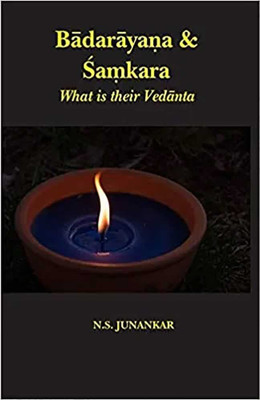Badarayana And Samkara: What Is Their Vedanta(Paperback, N S Junankar)
Quick Overview
Product Price Comparison
This conceptual framework is largely based on Vedanta and its prototype is undoubtedly the Vedanta of Samkara. In order to see this prototype in its native hue, it is necessary to abandon the disciplinary approach whereby certain aspects are dealt with ŌĆō religion philosophy, sociology, etc. For instance, we do not know any thing about Badarayana, except the period during which he may have lived; he is supposed to have lived during the second century B.C. The Brahma Sutra of Badarayana is the ŌĆślocus classicusŌĆÖ of the Upanisadic system known as Vedanta and it acquired the prestige and authority amongst the intelligentsia from the time of Samkara. Dr. N.S. Junankar was a distinguished scholar and educationalist. He graduated with a First Class degree in Philosophy from Nagpur University (1931), India, and was awarded Sir Arthur Blennerhasset and Korea Durbar Gold Medals. He was then awarded the King Edward Memorial Scholarship for Post Graduate Studies in Philosophy. With the Scholarship he went to Oxford University to study Philosophy and was supervised by Professor S. Radhakrishnan (who subsequently became IndiaŌĆÖs President). He was awarded a B.Litt. (Oxon) degree in 1935 for this thesis ŌĆ£The Historical Criticisms of the Sam╠Żkhya in Indian PhilosophyŌĆØ. In 1936 he was awarded a D.Phil. (Oxon) for his thesis ŌĆ£The Conceptions of Time, Space and Motion in early Indian PhilosophyŌĆØ. Over the years he played an important role in IndiaŌĆÖs contribution to UNESCO, including representing India in many international conferences as a delegate, and Secretary General for the Eighth General Conference in 1954. He was posted an Education Adviser in the Ministry of Education, Government of India he was posted as Education Adviser to the to the High Commissioner of India in London (1960-64). On retiring from the Ministry of Education, he was awarded a Leverhulme Senior Fellowship at the School of Oriental and African Studies, University of London (1965-70).


